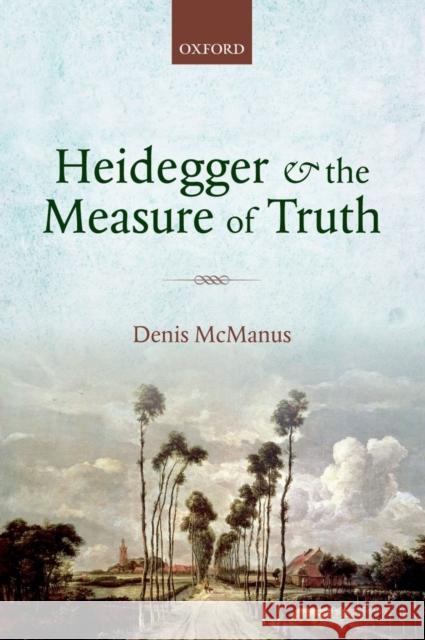Heidegger and the Measure of Truth: Themes from His Early Philosophy » książka
Heidegger and the Measure of Truth: Themes from His Early Philosophy
ISBN-13: 9780199694877 / Angielski / Twarda / 2013 / 272 str.
Denis McManus presents a new interpretation of Heidegger's early vision of our subjectivity and of the world we inhabit. Heidegger's "fundamental ontology" allows us to understand the creature that thinks as also one which acts, moves, even touches the world around it, a creature at home in the same ordinary world in which we too live our lives when outside of the philosophical closet; it also promises to free us from seemingly intractable philosophical problems, such as scepticism about the external world and other minds. But many of the concepts central to that vision are elusive; and some of the most widely accepted interpretations of Heidegger's vision harbour within themselves deep and important unclarities, while others foist upon us hopeless species of idealism. Drawing on an examination of Heidegger's work throughout the 1920s, Heidegger and the Measure of Truth offers a new way of understanding that vision. Central is the proposal that propositional thought presupposes what might be called a "measure," a mastery of which only a recognizably "worldly" subject can possess. McManus shows how these ideas emerge through Heidegger's engagement with the history of philosophy and theology, and sets out a novel reading of key elements in the fundamental ontology, including Heidegger's concept of "Being-in-the-world," his critique of scepticism, his claim to disavow both realism and idealism, and his difficult reflections on the nature of truth, science, authenticity, and philosophy itself. According to this reading, Heidegger's central claims identify genuine demands that we must meet if we are to achieve the feat of thinking determinate thoughts about the world around us.











